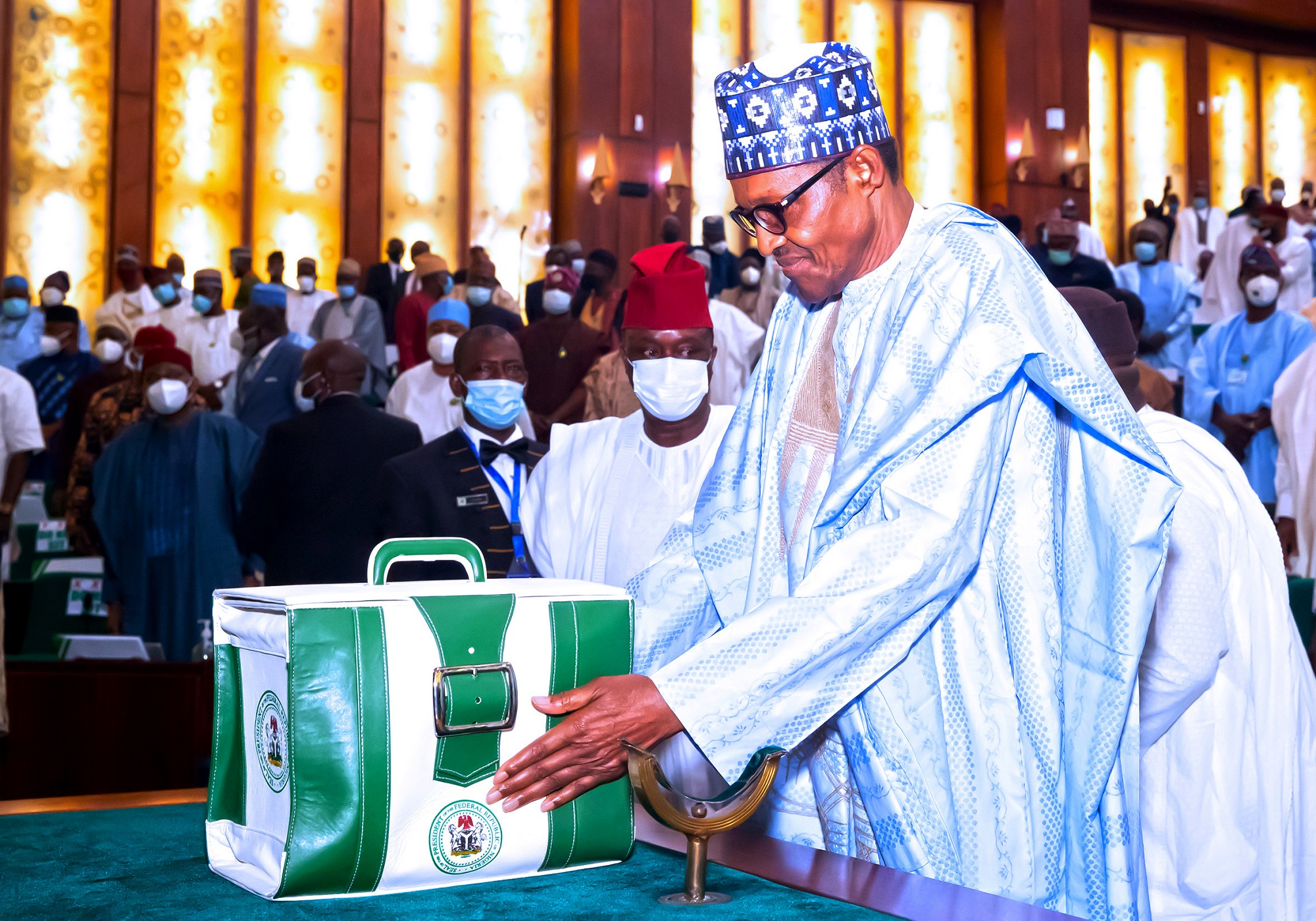Budget 2021: Need for urgent action
With the passage of Budget 2021 by the two chambers of the National Assembly, the stage is now set for its assent by President Muhamadu Buhari for its implementation to commence. It was presented to a Joint Session of the National Assembly on October 12, 2020, by the President, Tagged the ‘Budget of Economic Recovery […]

PRESIDENT BUHARI PRESENTS 2021 BUDGET
PHOTO; SUNDAY AGHAEZE. OCT 8 2020
With the passage of Budget 2021 by the two chambers of the National Assembly, the stage is now set for its assent by President Muhamadu Buhari for its implementation to commence. It was presented to a Joint Session of the National Assembly on October 12, 2020, by the President, Tagged the ‘Budget of Economic Recovery and Resilience’.
According to Buhari, Budget 2021 is designed to “Deliver on the Government’s Economic Sustainability Plan goals, accelerate the pace of Nigeria’s economic recovery, promote economic diversification, enhance competitiveness and ensure social inclusion’’.
This expectation makes it rather omnibus and ambitious. In value, the budget package comes at N13.88 trillion, with projected revenue of N7.89 trillion, the expenditure of N13.08 trillion and a deficit of N5.02 trillion, which is 64% of projected revenue. Other highlights of the budget include the provision of N3.12 trillion for servicing the country’s public debt, which stood at N31.01 trillion as at October 2020.
While all the metrics of the budget may not be inspiring, it still provides some positive features. For instance, this is the second national budget after that of 2020 that has been passed by the National Assembly within the statutory time frame of the preceding year of its run. This is even as the Presidency is yet to follow suit by also ensuring that the national budget is passed and assented to by the President also within the preceding year of its run.
Coming as it were as the first budget after the onset of the COVID-19 pandemic, which devastated economies across the world, it is not surprising that some aspects of Budget 2021 will feature rather uninspiring tendencies inherited from 2020. An instance is the revenue component, which reflects the drastic downturn in the economy throughout 2020 with the yet to abate pandemic and associated turbulence that hit a hard blow on the global oil and gas sector on which Nigeria depends preponderantly, making the country suffer from the backlash of the crises in the global market. These crises include a pre-COVID-19 pricing conflict between some oil majors before the pandemic came and made things worse with its restrictions on production and marketing operations. The fallouts from those tendencies are inexcusably impacting on the character of Budget 2021, in the form of a diminished revenue profile and high dependence on deficit, among other effects. To accentuate the circumstances of the Nigerian economy, the country slipped into a recession following the incidence of no growth for the second and third quarters of 2020.
It is, therefore, in the ambience of the foregoing state of the Nigerian economy in the latter portion of 2020 and which is anything but friendly, that the government expects Budget 2021 to drive its goals of Economic Recovery and Resilience. Specifically, the prescriptions of Budget 2021 are expected to reverse the plunge of the economy from its projected 3.3% growth in 2020 to a recession in same year. And given that the economic outlook for the country in 2021 hinges on the situation of 2020, the expectations of Budget 2021 constitute nothing but a tall order. The outlook takes a dour turn when it is considered that the Buhari administration is yet to demonstrate the typical cohesion, discipline and traction needed to pull an ailing economy out of the woods.
The foregoing, notwithstanding, the administration has through Budget 2021 launched a new deal to restore the country to winning ways, and has equally obtained from the National Assembly the statutory mandate to deliver. It, therefore, needs to see itself as having picked up the gauntlet and cannot go back on its words. While it is undeniable that 2020 was perhaps one of the worst years for Nigerians with its privations, the situation could be excused courtesy of the largely unanticipated global COVID-19 pandemic. The circumstances, however, call for a new administrative tempo by the government to ensure that the country returns from the recession as soon as possible. That is the acid test for Budget 2021.
